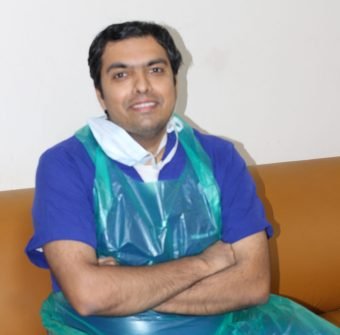Salivary Glands Cancer
Salivary gland cancer is a rare and aggressive neoplasm that may be caused by viruses, alcohol, radiation and chemicals. Symptoms usually appear in the mouth and may include pain and swelling, fever, bruising or a lump within the affected area of the salivary gland. Diagnosis is based on signs and symptoms as well as imaging tests. Treatment depends on the type of salivary gland cancer, its stage at diagnosis and your overall health status.
Salivary gland cancer can occur in various parts of the salivary glands. It is a rare type of oral cancer and it may arise from the epithelial, stromal or connective tissue cells. The symptoms and signs vary with location and type of salivary gland cancer and are categorized based on the disease’s stage.
Salivary gland cancer is a rare form of oral cancer in the salivary glands. Oral cancers can occur anywhere between your tongue to the back of the throat, but most cases are diagnosed in the early stages when a lump or sore appears on the surface of your mouth or gums. Most oral cancers are thought to originate from precancerous cells that then develop into invasive lesions that may metastasize (spread) throughout the body.
There are several types of cancer that affect the salivary glands, including: Cellulitis (an infection in the tissue of a gland) Tumors (abnormal growths) Sarcomas.
Salivary Gland Cancer is a rare and aggressive disease. The symptoms of salivary gland cancer include: a lump or swelling in the cheek; heavy build-up in the cheek; pain while eating; and/or difficulty chewing food.
The most promising salivary gland cancer treatment is autologous transplantation of tumor cells from the patient. Some surgeons may also use surgical resection with or without immediate reconstruction and radiation therapy.
Treatment of salivary gland cancer includes surgical removal and/or radiation therapy. Salivary glands are responsible for saliva production. Glial cells have been used as targets for treating cancer because of their role in protecting against disease, but no studies have shown that an anti-glial antibody has an impact on cancer treatment. Stem cells are also being investigated as a possible treatment modality for salivary gland tumors.
Salivary gland cancer treatment is a strategy that employs the use of radiotherapy and chemotherapy (chemotherapy) together to boost the activity of white blood cells, which are responsible for fighting off the tumor.
Standards of Treatment
Well Communication
Infection Prevention
10+ Years Experience
Why Choose Us
- Experienced Specialist Doctors
- Excellent Nursing Care
- Excellent Patient Care
- Friendly Ambience
- Equal treatment


